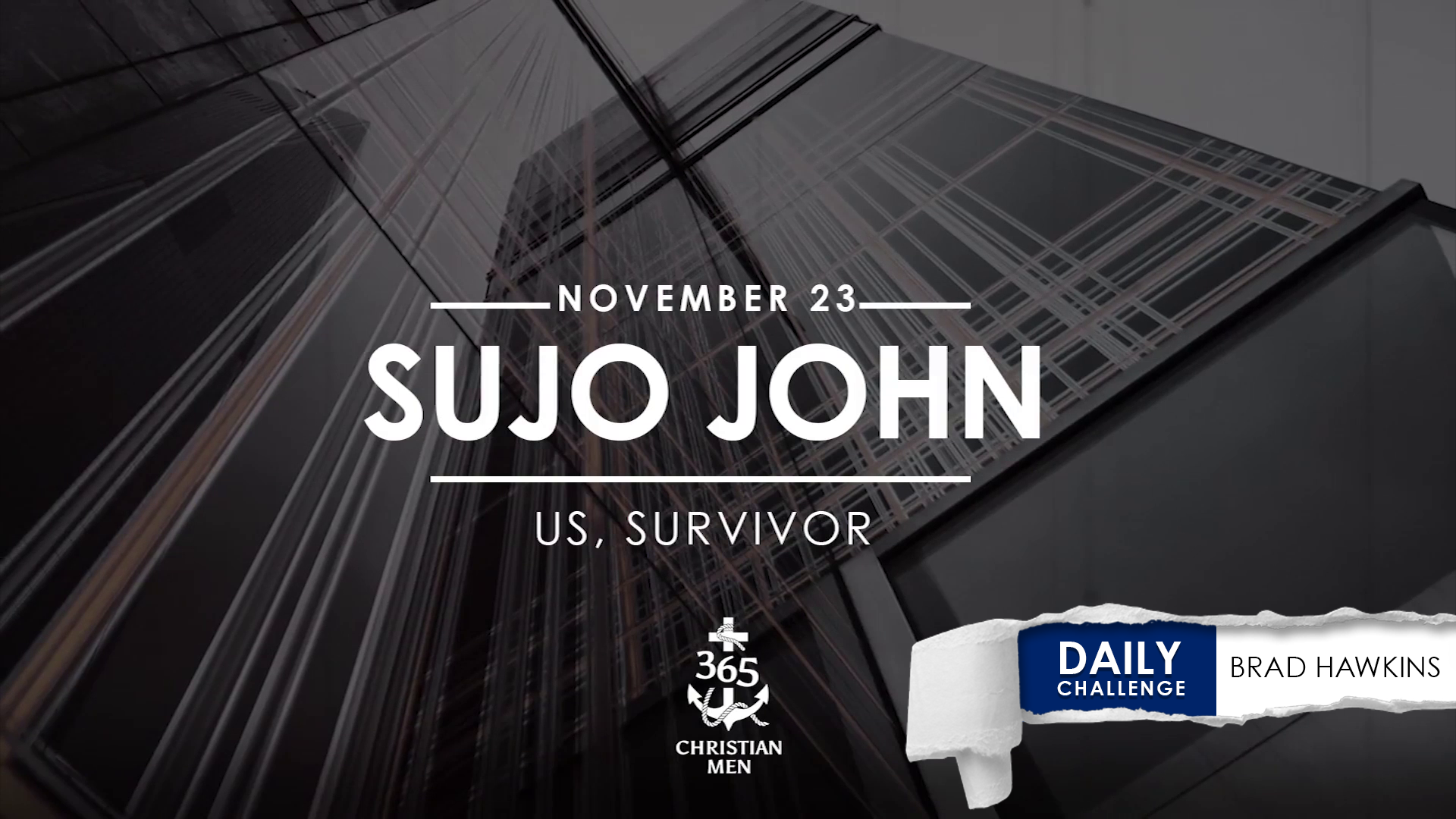December 2. Michael Lovold. On this date in 2016, Michael completed the last of seven major surgeries that had left him in chronic pain in a downward spiral. And when he had come to the end of his resources, God gave him a whole new life. Here’s how it happened.
When you’ve pitched your tent at rock bottom, let God turn your pain into purpose.
In the dead of summer, Michael parked his car in his driveway so his buddy wouldn’t notice his whisky plates. He had gotten a DUI a few weeks before, and the shame bore down on him. And his buddy would be dropping by soon.
For fifteen years, Michael had struggled through chronic, physical pain, which led to four back surgeries and three hip surgeries.
Along the way, he had lost his job and ended up on Social Security Disability. This crushing blow stripped away his role—a big part of his identity—family provider. All he had done was work hard for his wife and three daughters. No more.
Why had God brought him here? What would he do now? What was his purpose in life?
His last surgery was the most successful. His pain subsided some. Never completely gone, but enough to get off pain medication.
But the agony of not being able to physically work a regular job ate at him, so to escape, he thought, why not have a beer? And then another, and another. Like so many other times, instead of Michael having control of the substance, the substance took control of him.
And then the DUI. English teachers might think “rock bottom” is a cliché, but Michael knew differently. He had pitched his tent there, and the tent had collapsed on his head.
But God did not abandon Michael. Michael never took another sip of alcohol.
Now, in the driveway, he looked at the car again, hoping his buddy wouldn’t notice the license plates that screamed, “DUI!”
But as soon as he got there, the buddy announced, “You got whiskey plates!”
It was a punch in the gut. Michael didn’t know what to say.
“I’ve had those before,” the buddy said. “I’ve had a couple DUIs. Before you know it, Mikey, this will be so far behind you, you won’t even believe it.”
Maybe he wasn’t alone.
“I’ll pick you up on Sunday and take you to an AA meeting not far from here, if ya want. I usually go every week,” he said.
Michael never wanted to be controlled by alcohol or any other substance again, so he said yes, and he went to that AA meeting, and for the first time in his life, he embraced it. Praying to God for another chance in life—with his wife, with his daughters, with himself—he continued going every week, and then other meetings besides that.
He made new friends there, who had stories similar to his. Weekly coffee meetings with them started happening on a regular basis. He really wasn’t alone anymore, and in Michael, they had found a true friend.
His buddy, who had first brought Michael to the AA meeting, encouraged him to take on some leadership roles, which he did. And that’s when Michael started realizing his life, his experiences—both good and bad—were worthwhile.
Michael had been good at drinking beer. And he had been good at being a friend. Now he was good at being sober with his friends. He found himself on a path of doing something different and good and a perfect fit for him—he had a purpose in life.
“For we are God’s masterpiece. He has created us anew in Christ Jesus, so we can do the good things he planned for us long ago” (Ephesians 2:10 NLT).
What are you struggling with right now? Big stuff? Not so big? When you’ve pitched your tent at rock bottom, let God turn your pain into purpose.
Based on an interview with Michael Lovold, 2019.
Story read by Nathan Walker














